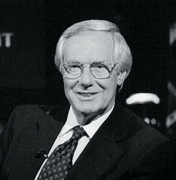LINCOLN
 Lincoln is the front-runner for this year’s best picture Oscar, just as its star Daniel Day-Lewis is for best actor. This seems to me exactly right. The Golden Globe may have gone to Argo, but ignore that. Globes are handed out by 80-odd car salesmen and pastry cooks who double as part-time movie critics; the Oscars are awarded by 6,000 film professionals who (mostly) know their business and they will surely agree that Lincoln is the better picture.
Lincoln is the front-runner for this year’s best picture Oscar, just as its star Daniel Day-Lewis is for best actor. This seems to me exactly right. The Golden Globe may have gone to Argo, but ignore that. Globes are handed out by 80-odd car salesmen and pastry cooks who double as part-time movie critics; the Oscars are awarded by 6,000 film professionals who (mostly) know their business and they will surely agree that Lincoln is the better picture. At its heart is a remarkable performance by Day-Lewis, our eponymous hero, as in Steven Spielberg’s simply told but gripping film, we follow Lincoln through the last months of his life and his greatest achievement – the passing of the 13th Amendment, which abolished slavery in America.
This was a huge accomplishment because he faced the strenuous opposition of the slave-owning Southern Democrats, who were well aware of what he was up to.
Lincoln certainly despised slavery but his motives were not entirely pure because he knew, as did the Democrats, that abolition would financially weaken the South and thus also weaken its political power.
Indeed, in many ways Honest Abe – soft-spoken, slightly hunched, wearied by the years of Civil War – was no more honest than you’d expect any politician to be. He wasn’t above a little bribery and dirty tricks to achieve his ends.
His opponents may have looked down on him as a rough, self-educated rube from the backwoods, lacking social polish and given to making his points by means of parables, but he was in fact an extremely astute politician.
Day-Lewis looks and, we are told, sounds just like Lincoln. Given that he has been known to demand up to a year simply to prepare for a film, he probably took months to achieve this effect but if so, it was well worth the effort.
His is the best performance by a movie actor for some time and he is splendidly supported in the political side of the story by David Strathairn as William Seward, the Secretary of State, and especially Tommy Lee Jones as Thaddeus Stevens, who for very personal reasons was the fiercest supporter of abolition in Congress.
Meanwhile, in a sub-plot concerning the desire of Lincoln’s son, Joseph Gordon- Levitt, to join the Civil War against his parents’ wishes – they had already lost their other son to illness – Sally Field gives one of her best performances as Mrs Lincoln.
It could well be argued, as Samuel L Jackson has done, that the film is too long. The perfect ending would have been the shot of Lincoln walking away from camera after the 13th Amendment had been passed. We didn’t really need the final segment dealing with Lincoln’s assassination, which hardly comes as a surprise. If we didn’t already know that happened, we probably wouldn’t be watching the film anyway.
That apart, this is the best movie among a pretty strong list of Oscar contenders this time around and should be a shoo-in for the top awards.


